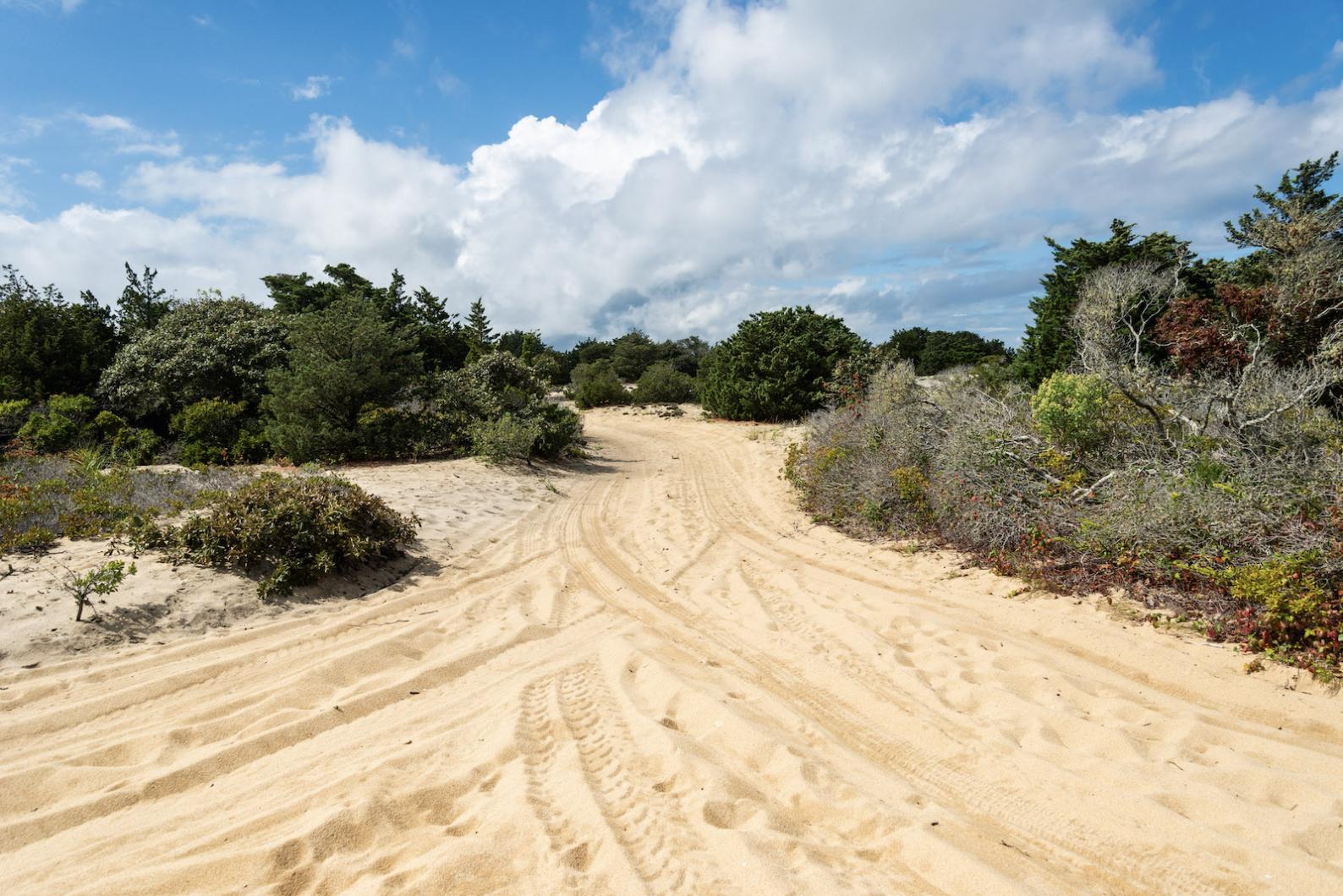Conservation officials are still on the fence on whether to approve The Trustees of Reservations’ oversand vehicle program on Chappaquiddick.
For decades, the Trustees have sold permits allowing people to drive out to the sandy beaches of Chappaquiddick, a popular destination for swimming, fishing and shellfishing. But the practice has come under fire in recent years, with neighbors alleging a pattern of mismanagement, noncompliance and understaffing at the dynamic coastal properties.
In a meeting held Nov. 8, the Edgartown conservation commission voted to extend the Trustees’ temporary order of conditions, a stopgap agreement between the two parties that allowed the Trustees to continue to operate the trails.
Originally set to expire Nov. 30, the conservation commission voted at that meeting to allow the Trustees to continue operating under its existing rules through the end of the year.
In a rare reconsideration, however, the commission chose to revisit its vote at Wednesday’s meeting after abutters raised concerns about the voting process. After some discussion, the commission decided to extend the order of conditions just one more week until the next hearing on Dec. 6.
Different parties have different ideas of what would happen should the temporary order of conditions expire. Shellfishermen have advocated to keep the properties open during scalloping season. Neighbors say that the public will be minimally impacted by a winter pause, when few are going to the beaches regularly. Most discussions revolved around whether the expiration will impact the Trustees’ winter restoration plans for the area.
The debate surrounding the Trustees’ management of its Chappaquiddick properties has endured for over a year and a half, since the statewide land trust first approached the commission to renew its OSV operations permits in 2022. Unable to decide on a long-term agreement, the commission ultimately granted the Trustees a temporary order of conditions in April 2023 meant to keep the beaches open through the end of the fishing derby season.
More than six months later, commission members and Trustees officials are nowhere closer to a path forward.
Approval is made more complicated by the fact that officials cannot determine what historic regulations looked like. Recently, building inspector Reade Milne wrote to the planning board stating she could not locate the Trustees’ original 1990 special permit allowing OSV access and requested the board’s advice.
At the Nov. 29 meeting, conservation officials questioned whether a refusal to extend would hinder the Trustees’ winter restoration projects. Although the beach nourishment and dune restoration projects have been approved under a separate permit, conservation agent Jane Varkonda admitted a non-extension could complicate matters.
“It makes it very gray as to whether Trustees personnel and equipment could access that area,” Ms. Varkonda said.
Trustees Islands director Darci Schofield said that although a majority of the restoration work will be carried out through a contractor, a small portion towards the end will be done by Trustees personnel. One major project, the trail restoration and beach nourishment at Cape Pogue, had been set to begin that week.
“It’s critical to get that taken care of,” commissioner Geoffrey Kontje said. “It’s overdue.”
Beach access advocates also pointed out that a failure to extend would make some of the Island’s most popular shellfishing destinations inaccessible to the public during scalloping season.
Abutters, many of whom were Cape Pogue residents, protested the extension, citing the Trustees’ recent and longstanding history of noncompliance. Since the temporary order of conditions took effect this spring, the town has found the Trustees to be noncompliant on two counts. Ms. Varkonda said she has also been in communication with Ms. Schofield regarding a set of port o’potties that had not been adequately secured.
“Jane and I were not in alignment in our understanding of the conditions, but I think we are doing better about that stuff,” Ms. Schofield said of the incidents.
According to town bylaws, extension votes do not require public hearings and are typically handled internally, Ms. Varkonda said. Still, she acknowledged that the current situation was “slightly irregular.”
“In this case…transparency is of the utmost importance,” Ms. Varkonda said.
Correction: A previous version of this article stated the building inspector's letter was addressed to the conservation commission. The commission was copied on a letter to the planning board.







Comments (5)
Comments
Comment policy »